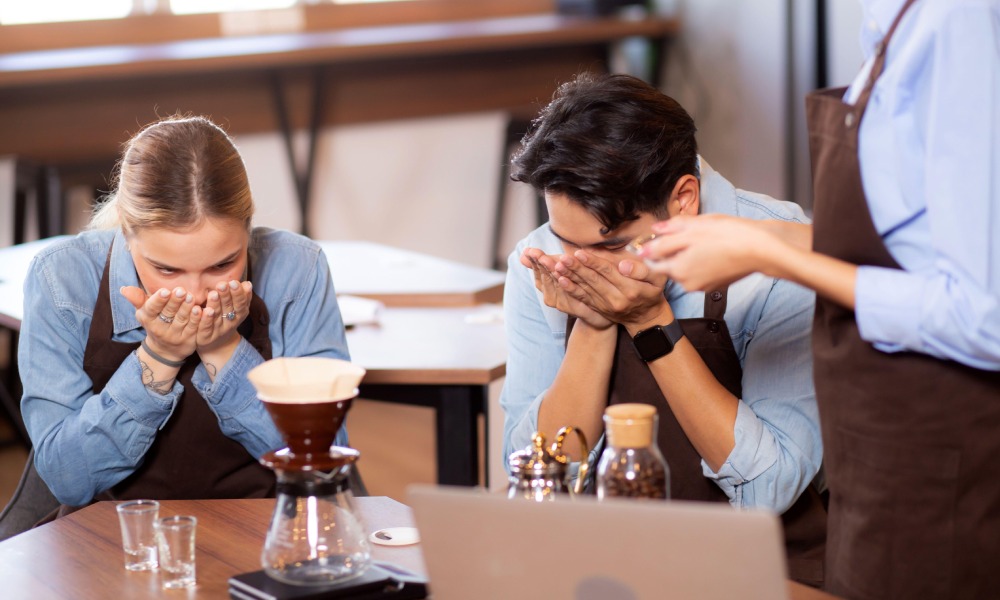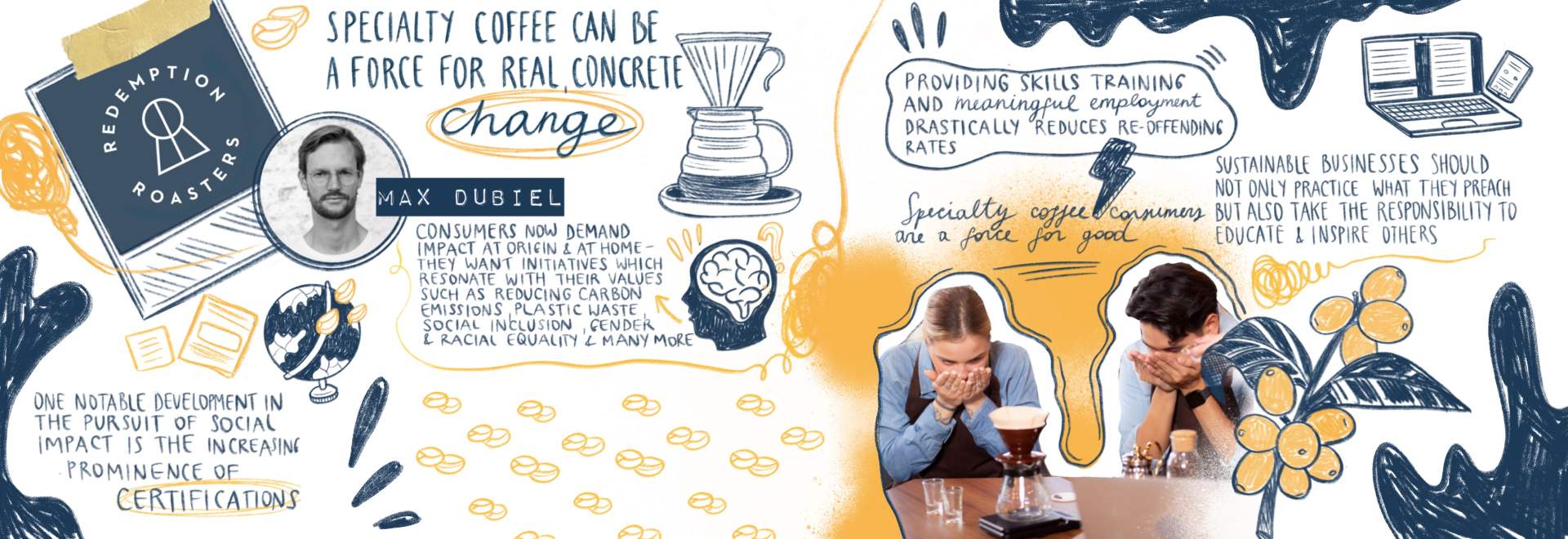Specialty coffee can be a force for real, concrete change
The founder of Redemption Roasters, Max Dubiel, shares his story of beginning a social impact specialty coffee company.
When we started Redemption Roasters seven years ago, our goal was to create a specialty coffee brand that went beyond exceptional coffee. Since then, it’s become evident that the way we talk about social impact in the coffee industry has changed.
Traditionally, impact in specialty coffee was primarily focused on ensuring fair wages and working conditions for farmers at the origin of coffee production. Think of the Fairtrade organisation, UTZ-certified and Rainforest Alliance-certified coffee.
While these initiatives were a crucial starting point, consumers now demand impact at origin and at home – they want initiatives which resonate with their values such as reducing carbon emissions, plastic waste, social inclusion, gender and racial equality and many more.
The role of meaningful employment
One area that is commonly used as a metric for social impact is unemployment, and how a company addresses employment gaps by creating better access to opportunities for marginalised groups.
An example of this is our work at Redemption Roasters. In the UK, the statistics surrounding prison leavers are concerning. Only 8% of them find employment upon release, contributing to one of Europe’s highest re-offending rates – a staggering 51%.
The implications are profound, not only for the taxpayer burden of an estimated £18.5 billion annually but also for the communities and victims of crime. What’s more, prison leavers who are released with jobs are 50% less likely to re-offend, offering a path towards a better future.
It became clear to us that providing skills training and meaningful employment drastically reduces re-offending rates. And if there is one category in hospitality that requires exceptional skills, it is specialty coffee.
Redemption Roasters are not alone in the pursuit of criminal justice reform within the coffee industry.
The Clink Charity, while not solely focused on the coffee industry, operates several cafes and restaurants including The Clink Café locations, where they provide training and employment opportunities to ex-offenders. Also, Change Please and Old Spike provide barista training and employment to individuals who have experienced homelessness.

More than an afterthought
Unfortunately, social impact can often be treated as an afterthought by corporations, added by the marketing department rather than being deeply ingrained in the core values of businesses.
The coffee industry is no exception. To break this pattern, businesses should aim to embed social impact into the very fabric of their operations – pushing their commitment beyond mere rhetoric.
On top of that, sustainable businesses should not only practice what they preach but also take the responsibility to educate and inspire others. As our former senior manager, Ben, recently emphasised, “more goes into a cup of coffee than the two minutes that customers see”. It is this holistic approach that sets apart sustainable specialty coffee from traditional commodity grade.
Specialty coffee consumers are a force for good
When lockdown hit in March 2020, many hospitality businesses had to pivot and adapt. In general, online subscription sales soured and, as soon as coffee shops began to re-open, takeaway trade boomed too.
While these trends could have been expected, an additional trend was entirely unforeseen. Customers suddenly had more time to engage with the mission of social impact businesses. For instance, never have we had more engagement on social media about our purpose and what we were doing specifically to help our beneficiaries through these difficult times.
Beyond Redemption, Tim Wendelboe consults for Michelin-starred restaurants and James Hoffmann boasts nearly half a million Instagram followers for a reason. By being at the forefront of a trend, they can teach the wider market about coffee’s impact on the environment and society.
This shift has a broader impact. Studies by Allegra reveal that 56% of UK consumers are willing to pay more for ethically produced products, while 87% would support a company advocating for a cause they care about.
More specifically, specialty coffee consumers tend to be at the more informed (some might even say geeky) end of the scale. They usually have more time, energy and spending power than average consumers. This can be a real force for good to educate and inspire.
As such, it is becoming increasingly evident that good companies thrive at the intersection of quality coffee and social responsibility.

Certifications and initiatives
One notable development in the pursuit of social impact is the increasing prominence of certifications – providing a framework for companies to embrace responsibility and accountability for their social and environmental practices.
In particular, B Corporations (B Corps) have developed a certain level of status. Worldwide there are 174 B corp coffee companies, demonstrating more and more coffee players want to see their impact certified through an all-encompassing model.
The B Corp accreditation process is a lengthy box-ticking exercise which can be challenging and frustratingly bureaucratic at times. However, the idea of certifying the comprehensive impact of a business is undeniably commendable.
Beyond certifications, several initiatives have emerged that align with the principles of social impact. The fair trade versus direct trade debate has gained traction, with consumers showing a growing preference for coffee that ensures fair compensation for farmers and promotes sustainable farming practices.
Project Waterfall has made strides in bringing clean water, sanitation, and education to coffee-growing communities. The Girls Gotta Run Foundation empowers young women in coffee-producing regions through running scholarships. Ocean Bottle is tackling the issue of plastic pollution by producing reusable bottles that fund ocean clean-up projects.
These examples highlight the breadth and diversity of initiatives driving positive change within the specialty coffee industry.
As a coffee entrepreneur, I am excited to witness the evolution of delivering social impact within our industry. From focusing on fair wages at origin to embracing local initiatives, compostable cups, and employment opportunities for marginalised individuals, we are shaping an industry that embraces responsibility, empathy, and sustainability.
The journey is far from over, but together, we can continue to brew positive change, one cup at a time.







